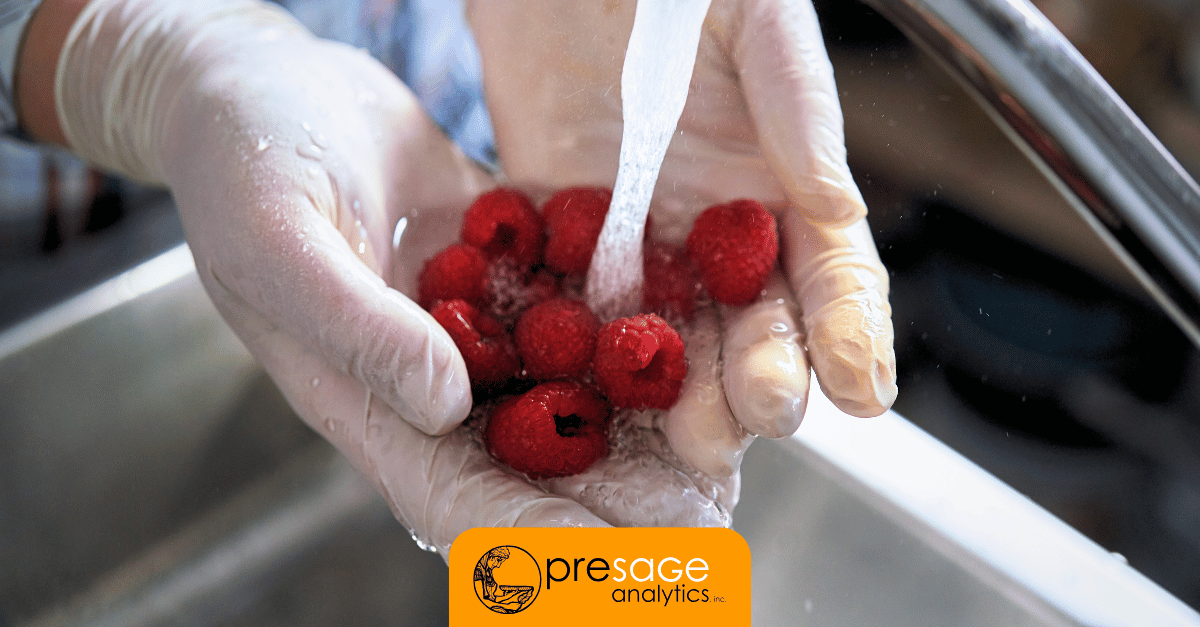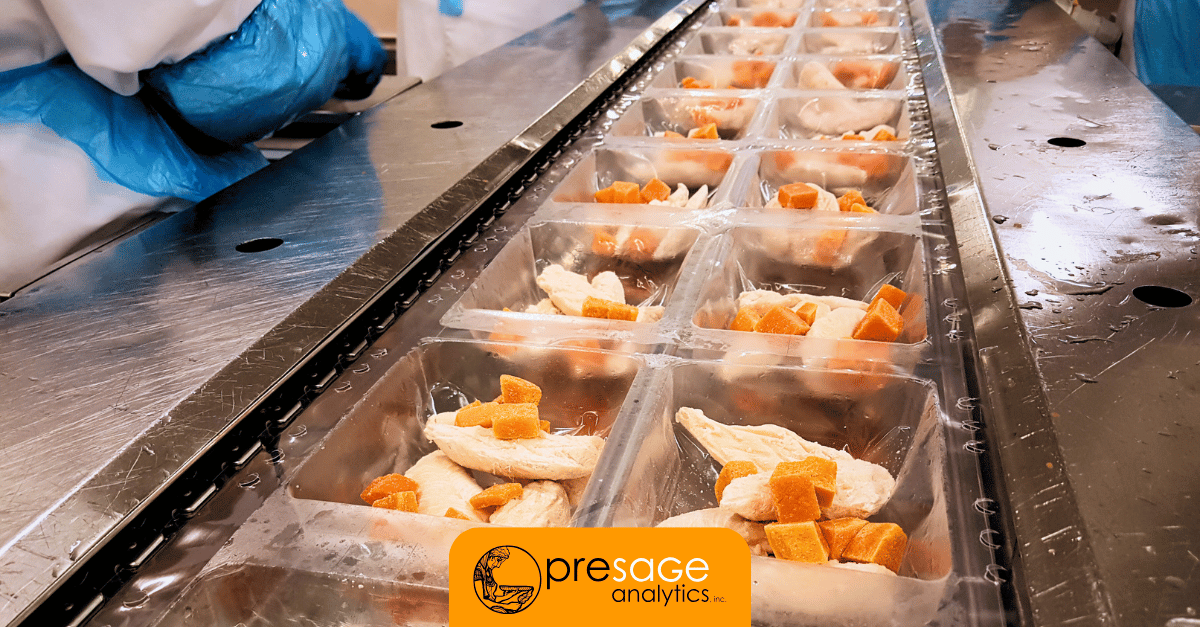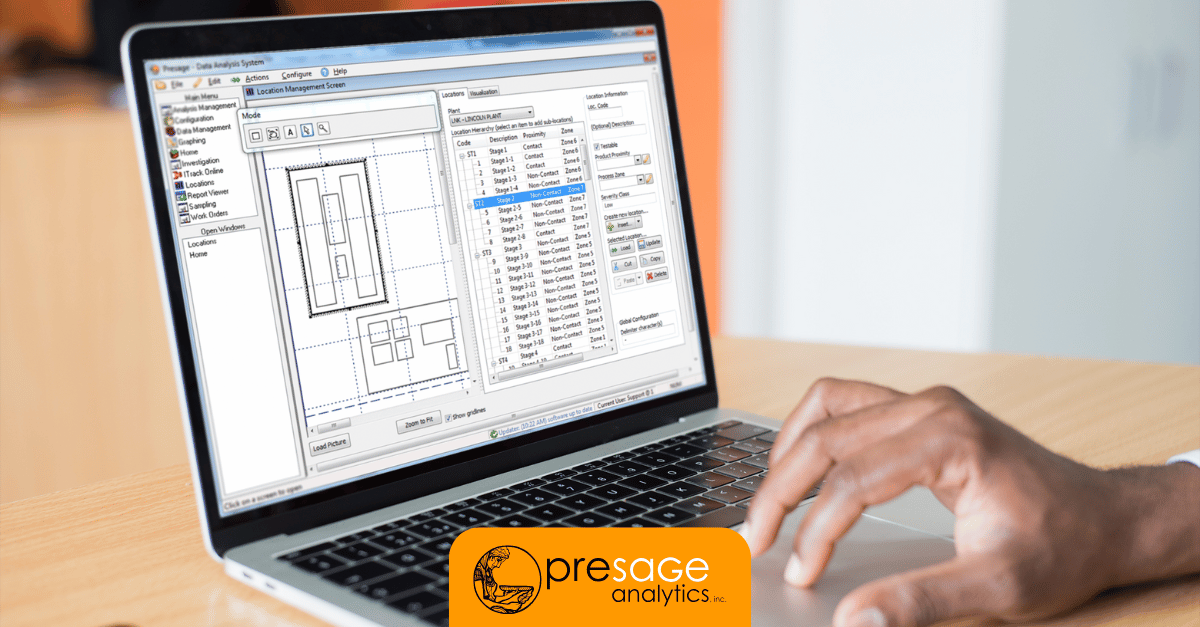Food Waste and the Environmental Impact
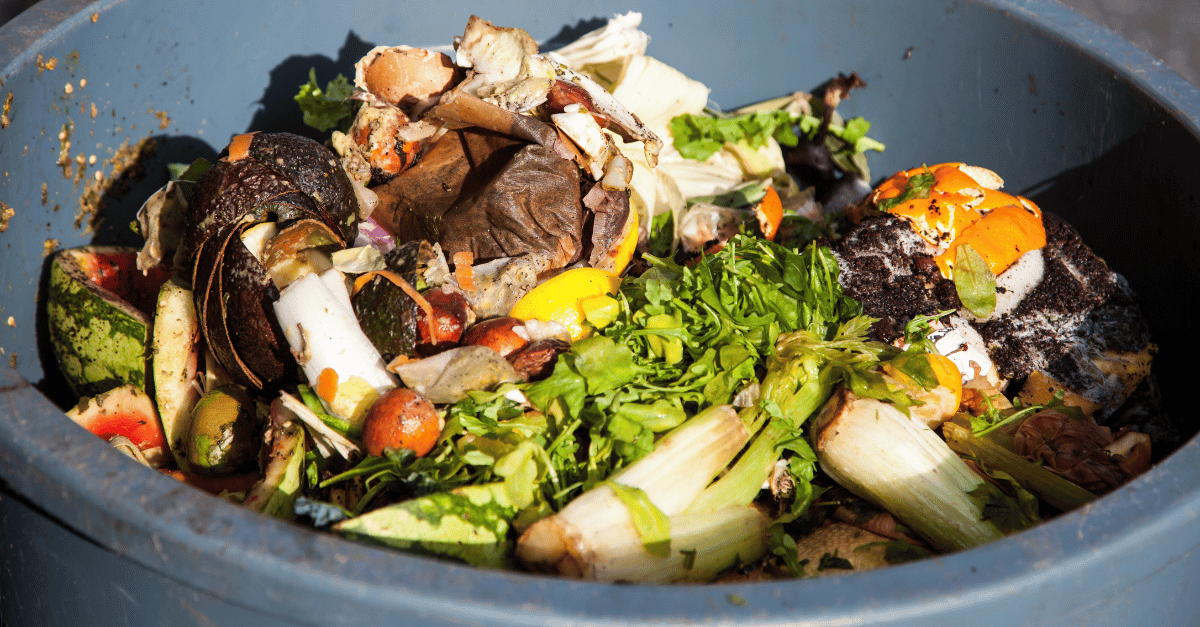
Did you know every year, nearly one-third of all food produced for human consumption goes to waste? The implications of this range from contributing to climate change to depleting natural resources like water and land. This means that working to prevent food waste isn’t just a matter of reducing costs—it’s also crucial for the health of our planet.
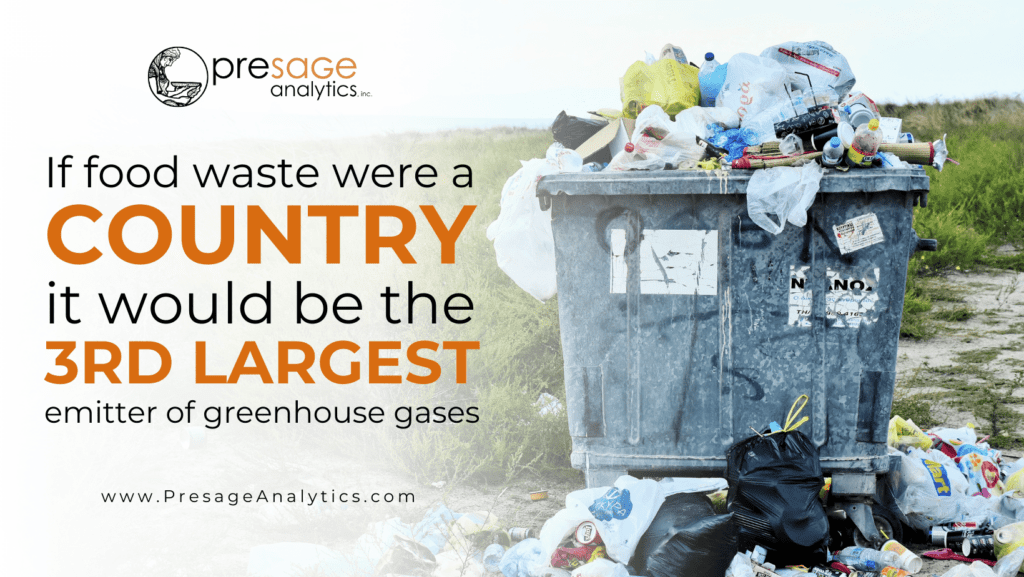
The Global Impact of Food Waste
When food is wasted, everything that went into producing, processing, and transporting it is also wasted. This includes water, energy, labor, land, and more. Food in landfills also generates methane, a potent greenhouse gas that contributes to climate change.
For example, the carbon footprint of wasted food is huge. If food waste were a country, it would be the third-largest emitter of greenhouse gases, behind only the U.S. and China.
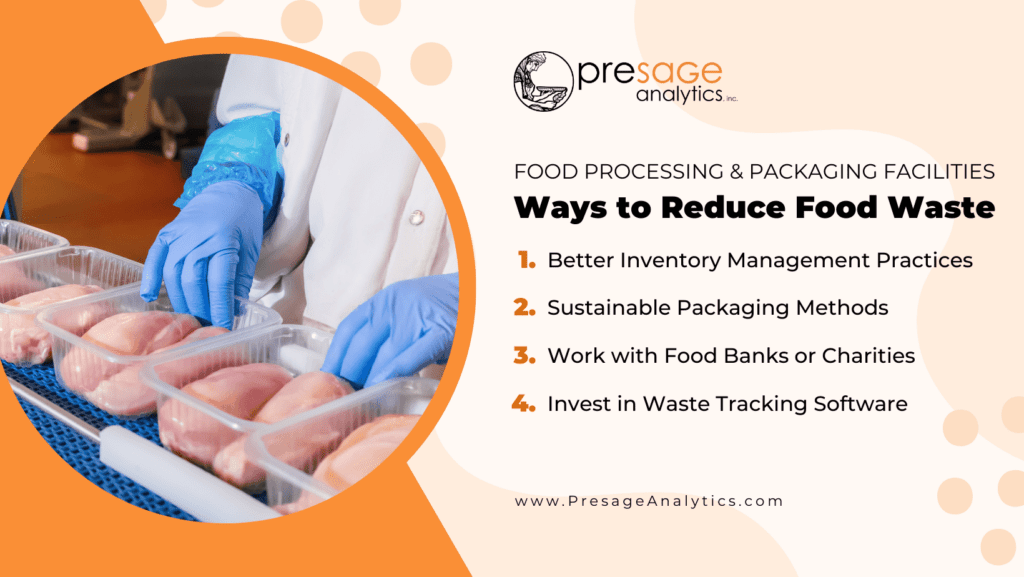
How Processing and Packaging Facilities Can Mitigate the Impact of Waste
For facilities that focus on processing and packaging food, here are a few ways to reduce waste:
- Better Inventory Management Practices: By utilizing software like Presage Analytics, facilities can more accurately forecast demand and optimize production, reducing the likelihood of overproduction.
- Sustainable Packaging Methods: Packaging that extends the shelf life of products can prevent spoilage before the food reaches consumers.
- Work with Food Banks or Charities: Facilities can partner with food banks or charities to redistribute surplus products, ensuring they don’t go to waste.
- Invest in Waste Tracking Software: By identifying inefficiencies and areas of waste, facilities can make targeted improvements that reduce overall waste.
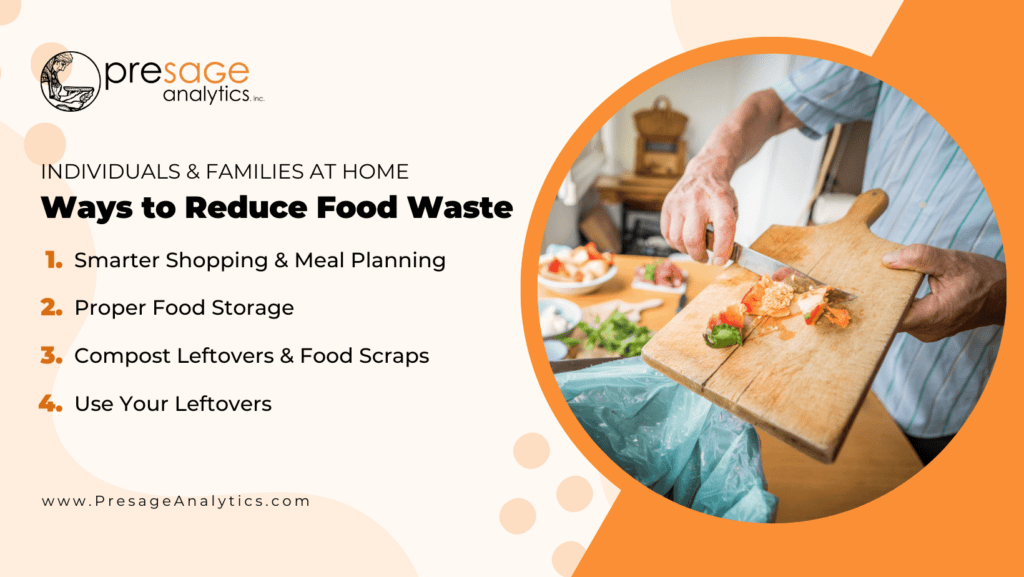
Practical Ways Individuals Can Reduce Food Waste
Individuals can make a big difference in reducing wasted food at home.
- Smarter Shopping and Meal Planning: By buying only what is needed and planning meals ahead of time, you can prevent over-purchasing, which often leads to food being thrown out.
- Proper Food Storage: Store foods in the correct temperature and containers to help extend the shelf life of perishable items.
- Compost Leftovers and Food Scraps: Composting is an excellent way to repurpose food scraps, turning waste into nutrient-rich soil for gardens.
- Use Your Leftovers: Get creative! Many dishes can be repurposed into new meals.
How Presage Analytics Can Help
Presage Analytics offers many tools to manage and reduce wasted food. Our software provides real-time data that helps businesses track inventory, forecast demand, meet regulations, and optimize production processes.
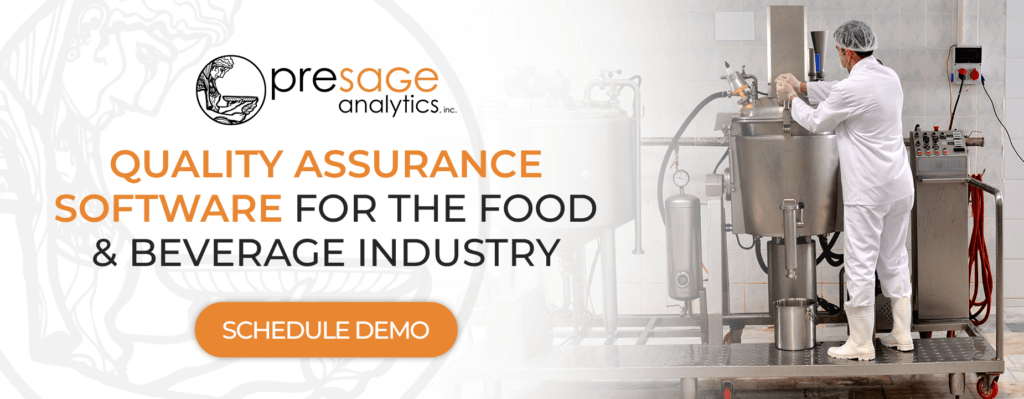
Taking Action to Reduce the Impact of Food Waste
The environmental impact of food waste is clear, and the need for action is urgent. By adopting better practices in your work and home, we can significantly reduce waste and its harmful effects on the planet.
Remember, every step counts. Whether it’s smarter shopping, better inventory management, or using advanced software like Presage Analytics, we all have a role to play. Contact Presage Analytics today to schedule a demo!

